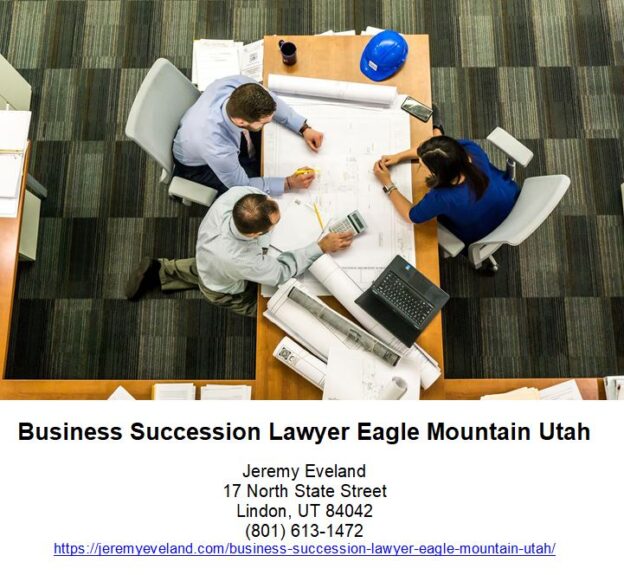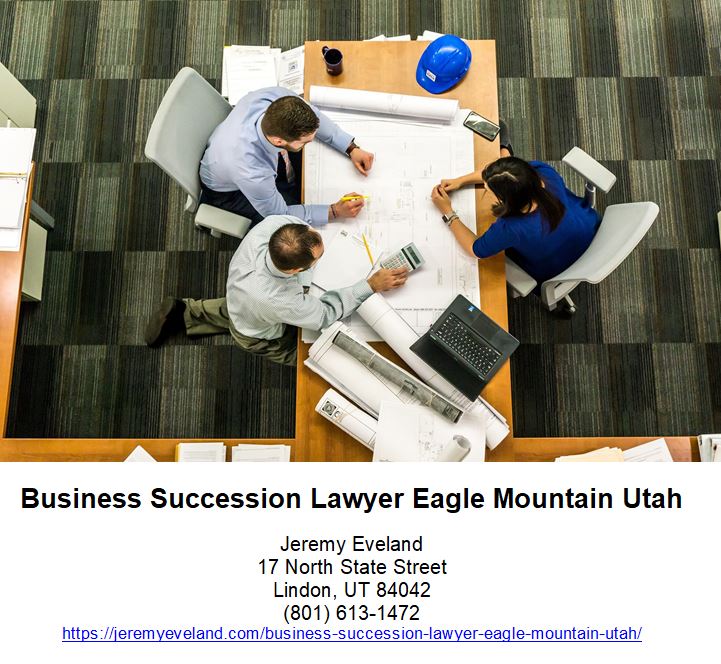If you’re looking for a reliable way to protect your assets and provide for your loved ones, Utah Revocable Trusts can be a game-changer. In this article, we’ll discuss everything you need to know about these trustworthy legal instruments. From explaining common legal concerns to offering guidance and reassurance, we’re here to address all your doubts. By optimizing the content with carefully chosen keywords, we’ve ensured that this article is easily discoverable by search engines. So, sit back, relax, and let us provide you with the essential information you need to make informed decisions about Utah Revocable Trusts. And, if you have any lingering questions, don’t worry – we’ve included a FAQ section with brief answers to address them too. So, let’s get started!
Overview of Revocable Trusts
A revocable trust, also known as a living trust or inter vivos trust, is a legal arrangement in which an individual, known as the grantor, transfers their assets into a trust while retaining control and ownership over those assets during their lifetime. The trust is “revocable” because the grantor has the ability to modify or revoke the trust at any time.
What is a revocable trust?
A revocable trust is a legal document that allows you to place your assets, such as real estate, bank accounts, investments, and personal property, into a trust that you can control during your lifetime. By naming yourself as the trustee, you can continue to manage and benefit from the assets held in the trust.
Purpose of a revocable trust
The primary purpose of a revocable trust is to provide for the management and distribution of your assets in the event of your death or incapacity. By creating a comprehensive plan through a revocable trust, you can ensure that your assets are protected and distributed according to your wishes, without the need for probate court proceedings.
Benefits of a revocable trust
There are several benefits to establishing a revocable trust. First, it allows for the seamless transfer of assets upon your death or incapacity, avoiding the time-consuming and costly probate process. Additionally, a revocable trust allows for privacy, as the distribution of assets does not become public record. It also provides flexibility, as you can make changes to the trust document as your circumstances or preferences change. Lastly, a revocable trust can help to minimize estate taxes and protect your assets for future generations.
Setting Up a Revocable Trust in Utah
If you reside in Utah and are considering setting up a revocable trust, there are several important steps to follow.
Choosing a trustee
The first step in setting up a revocable trust is to select a trustee. The trustee is responsible for managing the trust assets and carrying out your instructions. You can choose yourself as the initial trustee or name a trusted family member, friend, or professional as the trustee.
Selecting beneficiaries
Next, you will need to determine who will benefit from the assets held in the trust. This can include your spouse, children, grandchildren, or even charitable organizations. It is important to clearly identify the beneficiaries and their respective shares in the trust document.
Determining the assets to fund the trust
Once you have chosen a trustee and identified the beneficiaries, you will need to determine which assets you want to transfer into the trust. This can include real estate, bank accounts, investments, and personal property. It is important to work with an attorney to ensure that all necessary legal documents are executed to properly transfer ownership of these assets to the trust.
Drafting the trust document
The next step is to draft the trust document itself. This is a legally binding document that outlines how the trust will be managed, who the beneficiaries are, and how the assets should be distributed upon your death or incapacity. It is important to work with an experienced estate planning attorney to ensure that the trust document is properly drafted and reflects your wishes.
Signing and notarizing the trust document
Once the trust document has been drafted, it must be signed and notarized. This is a critical step in the process to ensure the validity and enforceability of the trust. It is important to carefully review the document before signing and seek legal advice if you have any questions or concerns.
Transferring assets to the trust
Finally, you will need to physically transfer ownership of the assets into the trust. This may involve updating property titles, changing beneficiary designations on accounts, and executing any necessary assignments or deeds. It is important to keep thorough records of these transfers for future reference.

Managing Assets in a Revocable Trust
Once the revocable trust has been established and the assets have been transferred, you will need to effectively manage the trust during your lifetime.
Retaining control of the trust
As the grantor and trustee of a revocable trust, you retain full control and decision-making authority over the trust assets. This means that you can continue to buy, sell, or invest the assets held in the trust as you see fit.
Adding or removing assets
One of the advantages of a revocable trust is its flexibility. You have the ability to add or remove assets from the trust as needed. This can be particularly beneficial if you acquire new assets or wish to divest yourself of certain assets during your lifetime.
Investing and managing trust assets
As the trustee, you are responsible for investing and managing the trust assets. You have a fiduciary duty to act in the best interests of the beneficiaries and make prudent investment decisions. It may be advisable to seek the assistance of a financial advisor or investment professional to help you navigate the complexities of managing trust assets.
Making distributions from the trust
During your lifetime, you have the ability to make distributions from the trust to yourself or to the beneficiaries named in the trust document. This can be done for various purposes, such as covering living expenses, education costs, or medical expenses. It is important to carefully consider the impact of these distributions on the overall value of the trust and consult with an attorney if you have any questions or concerns.
Updating the trust as needed
Life is full of changes, and it is important to update your revocable trust as your circumstances or preferences change. This can include changes in beneficiaries, changes in assets, or changes in your desired distribution plan. Regularly reviewing and updating your trust will help ensure that it remains relevant and effective throughout your lifetime.
Avoiding Probate with a Revocable Trust
One of the major advantages of a revocable trust is its ability to avoid the probate process.
Understanding the probate process
Probate is the legal process through which a deceased person’s assets are distributed to their heirs or beneficiaries. It involves filing the deceased person’s will (if they had one), validating the will, paying any outstanding debts or taxes, and distributing the remaining assets according to the terms of the will or state law. Probate can be time-consuming, expensive, and often involves court supervision.
Asset distribution through a revocable trust
By placing your assets in a revocable trust, you can avoid the probate process altogether. Upon your death or incapacity, the trust assets are distributed directly to the beneficiaries named in the trust document, without the need for court involvement. This can help expedite the distribution of your assets and reduce the associated costs and delays of probate.
Reducing costs and delays of probate
Probate can be a lengthy and costly process, often taking months or even years to complete. By utilizing a revocable trust, you can streamline the asset distribution process and minimize the expenses associated with probate. This can help ensure that your loved ones receive their inheritances in a timely manner and without unnecessary financial burden.
Maintaining privacy with a revocable trust
Unlike probate, which is a public process, a revocable trust allows for the distribution of assets to remain private. The terms of the trust and the identities of the beneficiaries are not part of the public record, providing a level of privacy for you and your loved ones. This can be particularly important in protecting sensitive financial information or preserving family privacy.
Revocable Trusts and Incapacity Planning
In addition to avoiding probate, a revocable trust can also be a valuable tool in incapacity planning.
Planning for incapacity
Planning for incapacity involves preparing for the possibility that you may become unable to manage your own financial affairs or make decisions regarding your medical care. By including provisions in your revocable trust that address incapacity, you can ensure that your assets are protected and decisions are made in accordance with your wishes.
Selecting a successor trustee
A revocable trust allows you to name a successor trustee who will step in and manage the trust assets in the event that you become incapacitated. It is important to choose someone you trust to act in your best interests and carry out your wishes. This can be a family member, friend, or professional trustee.
Instructions for managing your affairs
Within the revocable trust document, you can provide detailed instructions for how you would like your assets to be managed if you become incapacitated. This can include directions regarding the payment of bills, the sale of assets, and the distribution of income. By clearly expressing your intentions, you can help ensure that your affairs are handled in a manner that aligns with your values and priorities.
Avoiding guardianship and conservatorship
In the absence of a revocable trust or other incapacity planning documents, it may be necessary for a court to appoint a guardian or conservator to manage your affairs if you become incapacitated. This can be a costly and time-consuming process, as it involves petitioning the court and proving incapacity. By utilizing a revocable trust, you can help avoid the need for guardianship or conservatorship and maintain control over your assets.
Tax Considerations for Revocable Trusts
While revocable trusts offer a variety of benefits, it is important to consider the tax implications associated with these types of trusts.
Income tax implications
From an income tax perspective, a revocable trust is treated as a “grantor trust,” meaning that the grantor is responsible for reporting and paying taxes on the income generated by the trust assets. The trust itself does not pay income tax separately from the grantor.
Estate tax planning
A revocable trust does not provide any estate tax planning benefits on its own. However, it can be used in conjunction with other estate planning strategies to help minimize estate taxes. By retaining control of the assets held in the trust during your lifetime, you can potentially reduce the overall value of your taxable estate.
Utilizing the marital deduction
For married couples, a revocable trust can be structured to maximize the use of the marital deduction. The marital deduction allows for the transfer of assets between spouses without incurring estate tax. By incorporating this deduction into your estate plan, you can potentially reduce or eliminate estate tax liability upon the death of the first spouse.
Avoiding or minimizing capital gains tax
When assets are transferred into a revocable trust, the transfer does not trigger a capital gains tax liability. This is because the trust is treated as an extension of the grantor for tax purposes. However, it is important to consider the potential capital gains tax consequences when the assets are eventually sold or transferred out of the trust. Consulting with a tax professional can help you navigate these complexities and develop a tax-efficient plan.

Revocable Trusts vs. Irrevocable Trusts
It is important to understand the differences between revocable trusts and irrevocable trusts in order to choose the right type of trust for your needs.
Differences between revocable and irrevocable trusts
The key distinction between revocable and irrevocable trusts is the level of control and ownership that the grantor retains over the trust assets. With a revocable trust, the grantor maintains control and can modify or revoke the trust at any time. In contrast, an irrevocable trust restricts the grantor’s ability to make changes to the trust after it has been established.
Advantages and disadvantages of each
One of the advantages of a revocable trust is its flexibility. The grantor can make changes to the trust document, add or remove assets, and retain control over the assets during their lifetime. However, a revocable trust does not provide the same level of protection from creditors or estate tax benefits as an irrevocable trust.
On the other hand, an irrevocable trust offers greater asset protection and can provide estate tax planning advantages. Once the assets are transferred into the trust, they are no longer considered part of the grantor’s estate and are generally protected from creditors. However, the grantor relinquishes control over the assets and cannot make changes to the trust without the consent of the beneficiaries or a court order.
Choosing the right type of trust will depend on your specific goals and circumstances. Consulting with an experienced estate planning attorney can help you determine which type of trust is most appropriate for your needs.
Revocable Trusts and Medicaid Planning
Another important consideration when establishing a revocable trust is its impact on Medicaid eligibility and long-term care planning.
Medicaid eligibility and asset protection
Medicaid is a government program that provides healthcare coverage for individuals with limited income and assets. In order to qualify for Medicaid, certain income and asset limits must be met. By placing assets in a revocable trust, you may be able to protect them from being counted towards the Medicaid eligibility limits.
Considerations for long-term care
Long-term care, such as nursing home care or assisted living, can be incredibly expensive. By incorporating a revocable trust into your long-term care plan, you may be able to preserve your assets and qualify for Medicaid coverage. It is important to consult with an attorney who specializes in elder law and Medicaid planning to ensure that your trust is structured in a way that meets the requirements of Medicaid.
Preserving assets through a trust
By establishing a revocable trust, you can help preserve your assets and ensure that they are protected for your benefit during your lifetime. This can be particularly important if you anticipate the need for long-term care or want to leave an inheritance for your loved ones.
Understanding the look-back period
When applying for Medicaid, there is a “look-back period” that examines any transfers of assets made within a certain timeframe prior to applying for benefits. If assets were transferred into a revocable trust within the look-back period, they may still be considered as part of your assets for Medicaid eligibility purposes. It is important to consult with an attorney who can help you navigate this complex area of Medicaid planning.

Revoking or Amending a Revocable Trust
While a revocable trust provides flexibility during your lifetime, there may come a time when you need to revoke or amend the trust.
Changing the terms of the trust
If you wish to change the terms of the revocable trust, such as adding or removing beneficiaries, adjusting distribution amounts, or updating instructions, you can do so by executing a trust amendment. This document outlines the specific changes you want to make and must be signed and notarized in accordance with state law.
Removing or replacing a trustee
If you are no longer satisfied with the trustee you initially chose, you have the ability to remove or replace them. This can be done by executing a trustee removal document and appointing a new trustee in accordance with the terms of the trust.
Completing a trust amendment or restatement
In some cases, the changes you wish to make to the trust are more extensive and require significant revisions. In these situations, it may be necessary to execute a trust restatement, which essentially replaces the existing trust document in its entirety. This allows for more comprehensive changes without the need for multiple trust amendments.
Revoking the trust
If you no longer wish to maintain the revocable trust, you have the ability to revoke it altogether. This can be done by executing a revocation of trust document, which states your intention to terminate the trust and outlines the necessary steps for distributing the trust assets.
It is important to consult with an experienced estate planning attorney when considering any changes or revocations to your revocable trust. They can provide guidance and ensure that the proper legal documentation is prepared and executed.
Frequently Asked Questions
What is the difference between a revocable trust and a will?
While both a revocable trust and a will are estate planning tools, they serve different purposes. A revocable trust is a legal arrangement that allows you to transfer assets into a trust and retain control over them during your lifetime. It provides for the management and distribution of your assets both during your lifetime and after your death. In contrast, a will is a legal document that outlines your wishes for the distribution of your assets upon your death and appoints an executor to carry out those wishes. Unlike a revocable trust, a will must go through the probate process.
Can I be the trustee of my own revocable trust?
Yes, you can serve as the trustee of your own revocable trust. In fact, it is common for individuals to name themselves as the initial trustee, allowing them to continue managing and benefiting from the assets held in the trust. You can also name successor trustees to take over in the event that you become incapacitated or pass away.
What happens to a revocable trust after the grantor’s death?
Upon the grantor’s death, the revocable trust becomes irrevocable, meaning that it cannot be modified or revoked. The successor trustee, as named in the trust document, assumes control of the trust assets and is responsible for carrying out the grantor’s instructions regarding the distribution of those assets. The assets held in the trust are typically distributed to the beneficiaries in accordance with the terms of the trust document, without the need for court involvement or probate proceedings.
In conclusion, establishing a revocable trust in Utah can offer numerous benefits, such as avoiding probate, protecting assets, and planning for incapacity. By carefully selecting a trustee, determining beneficiaries and assets, and properly managing the trust, you can ensure that your assets are protected and distributed according to your wishes. Consulting with an experienced estate planning attorney is crucial in navigating the complexities of revocable trusts and ensuring that your estate planning goals are achieved.
Frequently Asked Questions:
- What is the difference between a revocable trust and a will?
- A revocable trust allows for the management and distribution of assets during lifetime and after death, avoiding probate. A will outlines the distribution of assets upon death and goes through probate.
- Can I be the trustee of my own revocable trust?
- Yes, you can serve as the trustee of your own revocable trust, allowing you to continue managing and benefiting from the assets held in the trust.
- What happens to a revocable trust after the grantor’s death?
- The revocable trust becomes irrevocable upon the grantor’s death. The successor trustee assumes control and distributes the assets to the beneficiaries according to the trust document.














